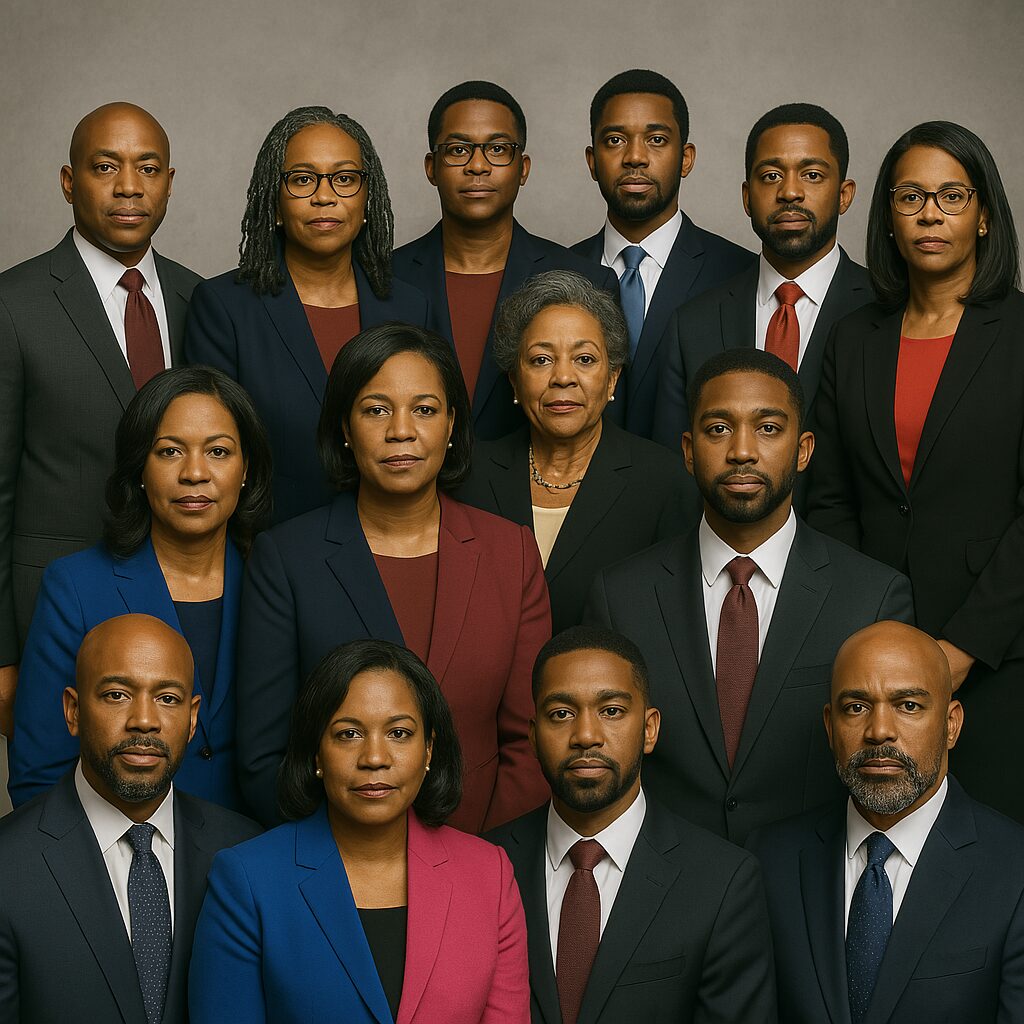March 27, 2025
As a national organization of current and former Black law enforcement professionals, Blacks in Law Enforcement of America is deeply committed to public safety, justice, and the protection of our communities. We wear the badge with honor, but we also know that justice cannot coexist with silence. Today, we feel compelled to speak out.
Despite decades of progress in political representation, not a single city led by Black elected officials—mayors, city councils, county executives, or state legislators—has eliminated the threat of police brutality against Black people.
Not one.
This reality is both painful and unacceptable. From New York to New Orleans, from Baltimore to Mount Vernon, Black citizens continue to face unlawful surveillance, harassment, violent arrests, and death at the hands of police departments overseen by officials who look like them. This isn’t just a policing crisis—it’s a leadership crisis.
We have watched with concern as Black elected officials rise to power but fail to act with urgency. They campaign on justice but govern with caution. They inherit corrupt departments and systemic problems, yet too often choose political survival over moral responsibility.
If antisemitism were rampant under a Jewish mayor, it would be shut down with the full force of political, legal, financial, and cultural power. It would not be tolerated, and any system or actor that allowed it to persist would be dismantled. The response would be swift, unapologetic, and absolute.
So why is anti-Black state violence still tolerated — and even managed — by Black mayors
The truth is, most do not challenge the status quo. Many fear being labeled “anti-police.” They tread lightly around police unions and lean on soft reforms that preserve relationships instead of protecting lives. But we, as Black law enforcement professionals, know better: you cannot reform what you refuse to confront. And you cannot protect the people if you are afraid to upset the systems that harm them.
Some may point to cities where reforms are underway, but even there, the depth of the crisis tells the story. New Orleans, under Mayor LaToya Cantrell, has been under a federal consent decree since 2013 for widespread police abuse, including excessive force and racial profiling. Baltimore, under Mayor Brandon Scott, remains under a similar Department of Justice (DOJ) agreement from 2017, following years of unconstitutional practices by its police department. In Louisville, Kentucky—after the police killing of Breonna Taylor—the DOJ had to intervene again in 2024, demanding sweeping changes. And in Mount Vernon, New York, a predominantly Black city led by Mayor Shawyn Patterson-Howard, the DOJ uncovered illegal strip searches and routine civil rights violations in 2024. Even where Black leadership exists, federal oversight has had to step in—because local leadership alone hasn’t been enough to stop the harm.
But it doesn’t stop there. We have also witnessed Black state attorneys general refusing to indict white police officers who shoot and kill unarmed Black men in mental health crises. In moments when the legal system cries out for accountability, those entrusted to uphold justice have turned away. If the people who sit above justice aren’t even going to try—then who do Black people go to? Who defends us when the law refuses to defend us? And when, exactly, did it become legal to shoot an unarmed man having a mental breakdown? Is the killing of Black men by police now so routine, so expected, that it no longer shocks the conscience of the state? These are not rhetorical questions. They are reflections of a society where our deaths have become policy. We are forced to ask: Has the killing of Black men by police become more American than apple pie?
We must also acknowledge the silence of our national Black political institutions. The African American Mayors Association (AAMA), which represents over 100 Black mayors across the country, has no formal platform to eradicate police brutality, corruption, or systemic misconduct. While their published agenda speaks vaguely of “public safety” and “police accountability,” it fails to put in writing the core policy demands that Black communities and civil rights advocates have called for for decades, including:
- The restructuring or disbanding of abusive police departments
- The dismantling of qualified immunity for officers who violate civil rights
- The prosecution of police misconduct, not just administrative discipline
- The creation of independent civilian oversight boards
- And the implementation of community control over policing in Black neighborhoods
In short, the AAMA has built a platform that avoids naming the problem and evades responsibility for solving it. You cannot say you are committed to Black safety while sidestepping the very systems that threaten it.
And now, the stakes are even higher. After the election of President Trump and the growing shift toward states’ rights, it has become increasingly clear that Black elected officials can no longer point to the federal government as an excuse for inaction. The power to protect Black people from abusive systems now lies squarely in the hands of local and state governments. And in many cities and counties across America, Black leaders hold that power. What they lack is not authority—it’s the will.
Let us be clear: this is not an attack on individual leaders. We respect the many mayors, council members, state attorneys, and legislators working within difficult systems. But it is a necessary wake-up call. Symbolic power is not enough. We need transformative leadership.
As law enforcement professionals who have worn the badge and served our communities, we know what real reform looks like. We’ve seen how departments change when leaders show courage—not caution. And we’ve seen what happens when they don’t: the same violence, the same trauma, the same funerals.
To every Black elected official reading this: we implore you to act. You were not elected to manage oppression. You were elected to end it. If you are not willing to fight for Black safety, step aside for those who will.
Because Black communities deserve more than symbolic representation. We deserve real protection. We deserve true justice. And we deserve leaders who are not just present for the photo ops and press briefings, but fully prepared to lead with courage, clarity, and commitment to ending the systems that harm us.
Blacks in Law Enforcement of America

